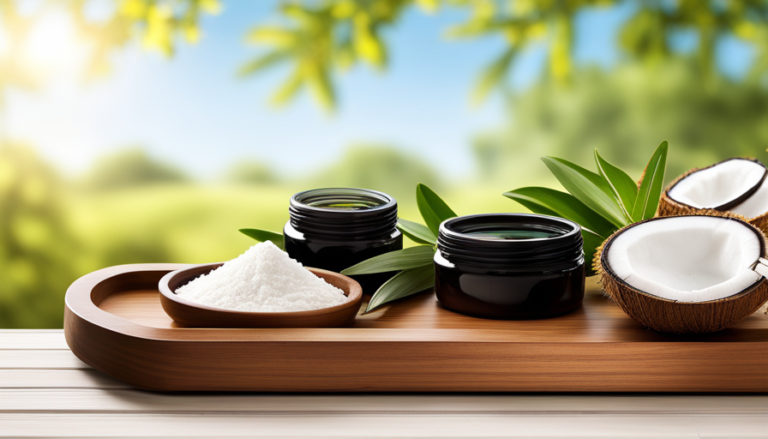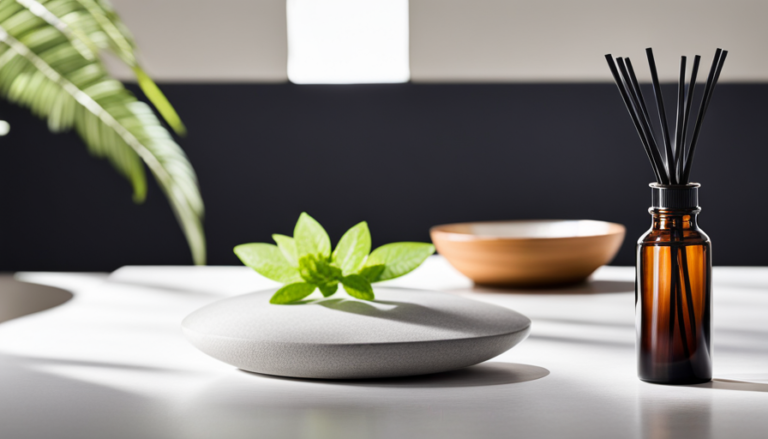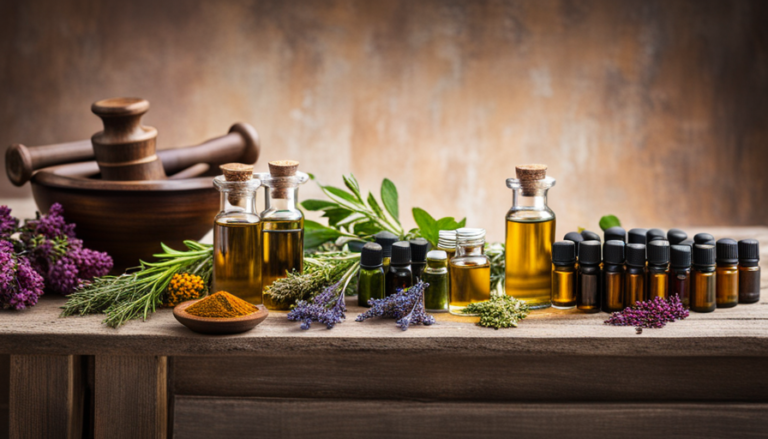Substitute Lemon Essential Oil For Lemon Juice

Are you tired of squeezing endless lemons for that burst of citrusy flavor? Look no further! We have an extraordinary solution for you: substitute lemon juice with the incredible lemon essential oil.
This game-changing ingredient will revolutionize your culinary experiences and skincare routines. With just a few drops, you can elevate your recipes to new heights, infusing them with the invigorating essence of fresh lemons. Say goodbye to tedious juicing and hello to convenience and flavor like never before!
In this article, we will explore the benefits of using lemon essential oil in both cooking and skincare. Discover how to incorporate this versatile oil into your favorite recipes without compromising taste or quality. Uncover its secrets for nourishing and rejuvenating your skin, leaving it radiant and glowing.
If you’re ready to embark on a journey towards enhanced flavors and vibrant skin, keep reading! We’ll also provide guidance on where to purchase high-quality lemon essential oil and answer some frequently asked questions about this remarkable ingredient. Get ready to unlock the full potential of lemons with lemon essential oil – a true kitchen staple!
Key Takeaways
- Lemon essential oil is a versatile substitute for lemon juice in cooking and skincare.
- It can be used in essential oil diffusers and DIY cleaning products.
- Lemon essential oil creates a refreshing and uplifting atmosphere when used in diffusers.
- It acts as a natural disinfectant and degreaser in DIY cleaning products.
Benefits of Using Lemon Essential Oil
You’ll be amazed at the incredible benefits you can enjoy by using lemon essential oil instead of lemon juice.
Lemon essential oil is a versatile and powerful ingredient that can be used in various ways, including in essential oil diffusers and DIY cleaning products.
When used in diffusers, lemon essential oil can help create a refreshing and uplifting atmosphere, promoting relaxation and reducing stress.
In DIY cleaning products, it acts as a natural disinfectant and degreaser, leaving your home clean and fresh without the use of harsh chemicals.
Additionally, lemon essential oil has antifungal and antibacterial properties that make it an effective ingredient for killing germs and preventing the growth of mold or mildew.
Now let’s explore how to incorporate this amazing oil into your favorite recipes seamlessly.
How to Use Lemon Essential Oil in Recipes
To incorporate the zesty zest of lemon essential oil into your recipes, try using it in place of the tangy taste of lemon juice. Lemon essential oil can be a great addition to your cooking, adding a burst of flavor and aroma. When using lemon essential oil in recipes, it is important to remember that it is highly concentrated, so a little goes a long way. Start by substituting 1-2 drops of lemon essential oil for every teaspoon of lemon juice called for in the recipe. This will ensure that you get the desired flavor without overpowering the dish. Lemon essential oil pairs well with both sweet and savory dishes, such as salad dressings, marinades, desserts, and beverages. Experiment with different amounts to find your perfect balance of flavor. By incorporating lemon essential oil into your recipes, you can elevate the taste profile and add a refreshing twist to your dishes.
Now let’s transition into incorporating lemon essential oil in skincare without skipping a beat!
Incorporating Lemon Essential Oil in Skincare
Enhance your skincare routine with the invigorating essence of lemon essential oil, as it effortlessly revitalizes and rejuvenates your skin. Lemon essential oil is a versatile ingredient that offers numerous benefits for skincare. Its natural antibacterial properties help combat acne-causing bacteria, while its astringent qualities help tighten and tone the skin, reducing the appearance of pores.
Incorporating lemon essential oil into your skincare regimen can also promote a brighter complexion, as it helps to fade dark spots and even out skin tone. Furthermore, lemon essential oil can be used in aromatherapy to uplift mood and reduce stress, creating a holistic approach to self-care.
Additionally, this versatile oil can be used for household cleaning due to its antimicrobial properties.
Transitioning into the subsequent section about where to buy lemon essential oil, you’ll find various options available to explore further.
Where to Buy Lemon Essential Oil
If you’re in the market for lemon essential oil, there are plenty of places to get your hands on this zesty elixir. When it comes to purchasing lemon essential oil, it’s important to find a reliable source that offers high-quality products.
Here are two options for where you can buy lemon essential oil:
-
Online retailers: Many reputable online retailers specialize in selling essential oils, including lemon essential oil. They often provide a wide range of options and allow you to read customer reviews before making a purchase.
-
Health food stores: Local health food stores often carry a variety of essential oils, including lemon essential oil. These stores prioritize natural products and may have knowledgeable staff who can assist you in finding the right product for your needs.
Lemon essential oil has various uses in aromatherapy, such as promoting relaxation and reducing stress. Additionally, it can be used as an ingredient in natural cleaning products due to its antibacterial properties.
Now that you know where to buy lemon essential oil and how it can be used, let’s move on to frequently asked questions about this versatile elixir.
Frequently Asked Questions about Lemon Essential Oil
When it comes to storing lemon essential oil, it’s important to keep it in a cool, dark place away from direct sunlight and heat sources. This will help prolong its shelf life and maintain its potency.
If you’re looking to substitute lemon essential oil for fresh lemon juice in recipes or drinks, keep in mind that the flavor concentration may vary, so start with a small amount and adjust to taste.
Lastly, if you have any known allergies or sensitivities to citrus fruits, it’s advisable to perform a patch test before using lemon essential oil topically or ingesting it.
Storage and Shelf Life
Store your lemon essential oil properly to ensure its freshness and extend its shelf life. Proper storage techniques are crucial for preserving the properties of this versatile oil. Here are some key guidelines to follow:
| Storage Technique | Description |
|---|---|
| Temperature | Keep your lemon essential oil in a cool, dark place away from direct sunlight or heat sources. Fluctuations in temperature can degrade the oil’s quality. |
| Container | Store the oil in a dark glass bottle with a tight-fitting lid to protect it from exposure to air and light, which can cause oxidation and deterioration. Avoid plastic containers as they may interact with the oil’s chemical composition. |
| Sealing | Always tightly seal the bottle after each use to prevent oxygen from entering and deteriorating the oil’s aroma and potency. |
| Shelf Life | Lemon essential oil typically has a shelf life of around one to two years if stored properly. |
By following these storage techniques, you can maintain the freshness and potency of your lemon essential oil for an extended period. Now let’s explore how you can substitute fresh lemon juice with this fragrant oil without compromising flavor or health benefits.
Substituting for Fresh Lemon Juice
Now that you understand how to properly store and maximize the shelf life of lemon essential oil, let’s explore how it can be used as a substitute for fresh lemon juice. Substituting citrus flavor in your recipes is easy with lemon essential oil. Not only does it provide a concentrated burst of tangy flavor, but it also offers numerous health benefits.
Lemon essential oil is known to support digestion, boost immunity, and promote detoxification. It’s rich in antioxidants and can even help balance pH levels in the body. When substituting lemon essential oil for lemon juice, remember that it’s highly concentrated, so a little goes a long way. Typically, 1-2 drops of lemon essential oil can replace the juice of one whole lemon.
However, be aware that some individuals may have allergies or sensitivities to citrus oils, which we’ll discuss further in the next section about potential allergies or sensitivities.
Potential Allergies or Sensitivities
If you have any allergies or sensitivities, it’s important to be cautious when using citrus oils like lemon essential oil. While lemon juice is a common ingredient in many recipes, some people may experience allergic reactions or citrus sensitivities when using lemon essential oil. This is because the oil contains concentrated amounts of the compounds found in lemons.
Allergic reactions can range from mild symptoms such as itching and hives to more severe reactions like difficulty breathing or anaphylaxis. Citrus sensitivities can cause digestive issues, skin rashes, or respiratory problems.
It’s recommended to perform a patch test before using lemon essential oil topically and consult with a healthcare professional if you have any concerns about potential allergies or sensitivities.






